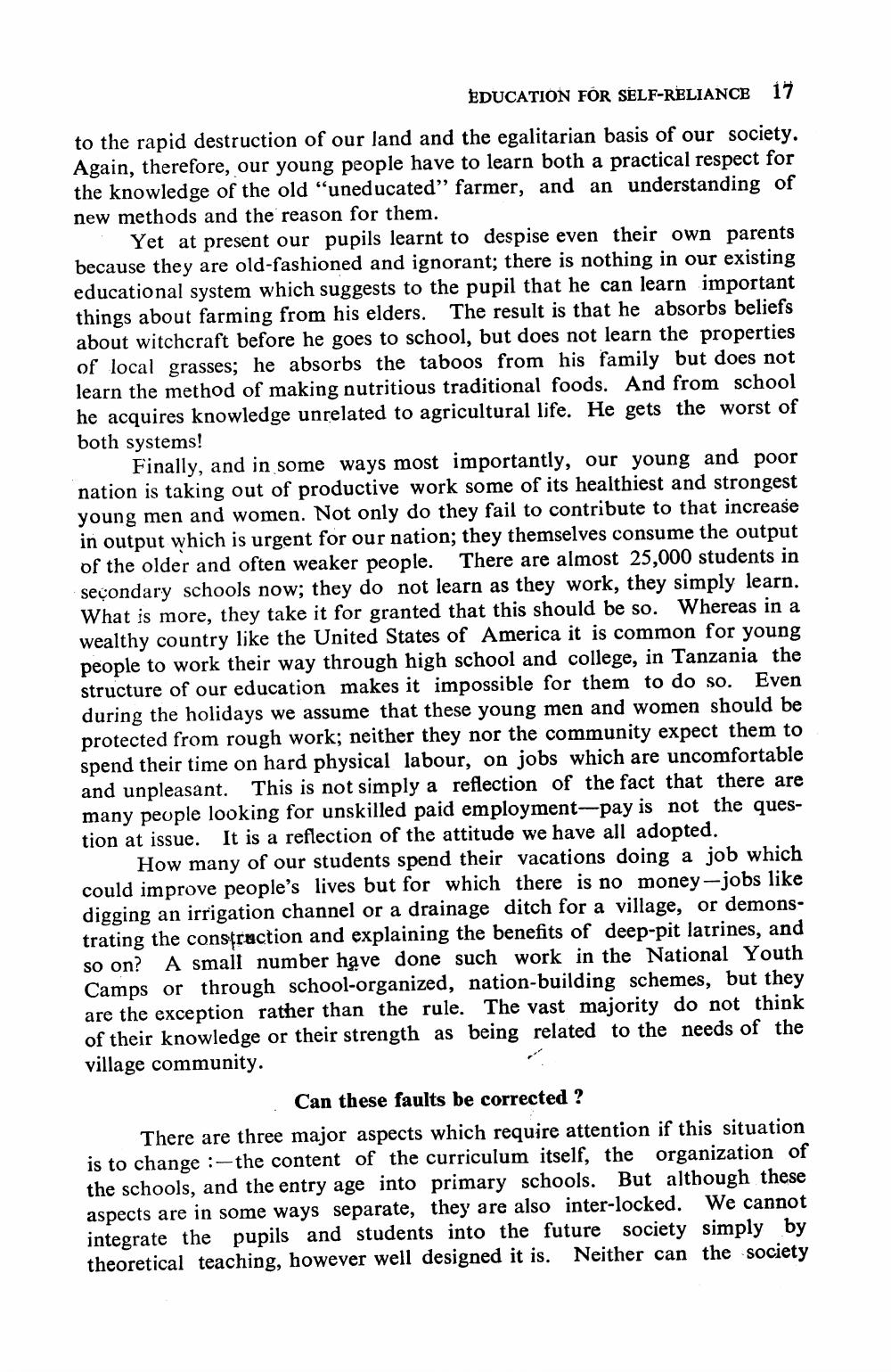Book Title: Education For Self Reliance Author(s): Julius K Nyerere Publisher: Julius K Nyerere View full book textPage 9
________________ EDUCATION FOR SELF-RELIANCE 17 to the rapid destruction of our land and the egalitarian basis of our society. Again, therefore, our young people have to learn both a practical respect for the knowledge of the old "uneducated" farmer, and an understanding of new methods and the reason for them. Yet at present our pupils learnt to despise even their own parents because they are old-fashioned and ignorant; there is nothing in our existing educational system which suggests to the pupil that he can learn important things about farming from his elders. The result is that he absorbs beliefs about witchcraft before he goes to school, but does not learn the properties of local grasses; he absorbs the taboos from his family but does not learn the method of making nutritious traditional foods. And from school he acquires knowledge unrelated to agricultural life. He gets the worst of both systems! Finally, and in some ways most importantly, our young and poor nation is taking out of productive work some of its healthiest and strongest young men and women. Not only do they fail to contribute to that increase in output which is urgent for our nation; they themselves consume the output of the older and often weaker people. There are almost 25,000 students in secondary schools now; they do not learn as they work, they simply learn. What is more, they take it for granted that this should be so. Whereas in a wealthy country like the United States of America it is common for young people to work their way through high school and college, in Tanzania the structure of our education makes it impossible for them to do so. Even during the holidays we assume that these young men and women should be protected from rough work; neither they nor the community expect them to spend their time on hard physical labour, on jobs which are uncomfortable and unpleasant. This is not simply a reflection of the fact that there are many people looking for unskilled paid employment-pay is not the question at issue. It is a reflection of the attitude we have all adopted. How many of our students spend their vacations doing a job which could improve people's lives but for which there is no money-jobs like digging an irrigation channel or a drainage ditch for a village, or demonstrating the construction and explaining the benefits of deep-pit latrines, and so on? A small number have done such work in the National Youth Camps or through school-organized, nation-building schemes, but they are the exception rather than the rule. The vast majority do not think of their knowledge or their strength as being related to the needs of the village community. Can these faults be corrected ? There are three major aspects which require attention if this situation is to change :- the content of the curriculum itself, the organization of the schools, and the entry age into primary schools. But although these aspects are in some ways separate, they are also inter-locked. We cannot integrate the pupils and students into the future society simply by theoretical teaching, however well designed it is. Neither can the societyPage Navigation
1 ... 7 8 9 10 11 12 13 14 15 16 17 18
